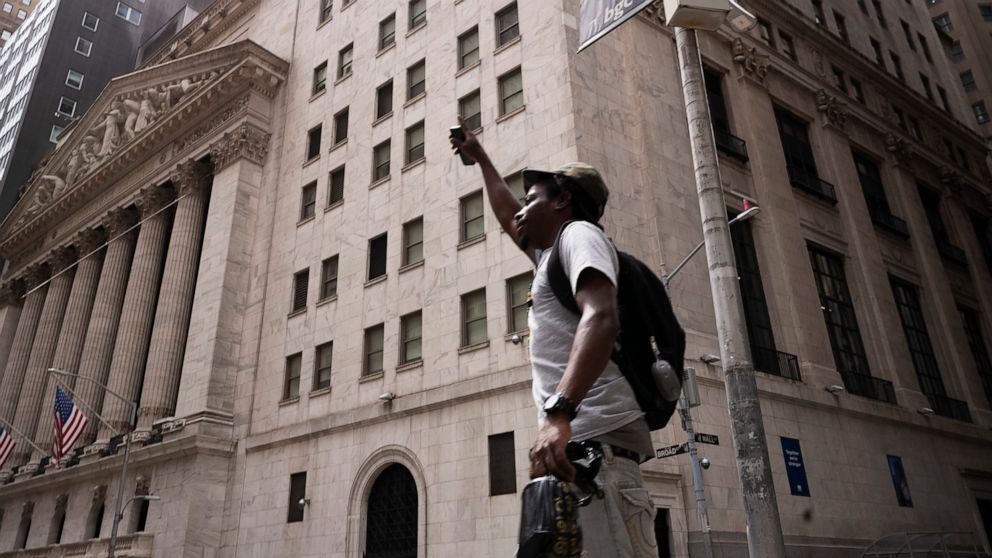Global shares mixed, markets look to central banks, earnings
Global shares are mixed, with European indexes rising in early trading, while Asian benchmarks tumbled, as investors looked ahead to central bank meetings and corporate earnings reports
By
YURI KAGEYAMA AP Business Writer
July 31, 2020, 9:11 AM
4 min read
TOKYO — Global shares were mixed Friday, with European indexes rising in early trading, after Asian benchmarks mostly tumbled, as investors looked ahead to central bank meetings and corporate earnings reports.
Market players are monitoring financial reports to see how businesses have managed the fallout from the continued outbreaks of COVID-19. Some technology companies have bucked the trend and are showing positive results. But many companies are hurting.
Investors also are looking ahead to central bank meetings in Britain, Australia, India, Russia and Thailand next week.
France’s CAC 40 added 0.6% in early trading to 4,881.25, while Germany’s DAX gained nearly 0,8% to 12,474.45. Britain’s FTSE 100 jumped 0.6% to 6,026.35. U.S. shares were set to drift higher with Dow futures at 26,288.0, up 0.3%. S&P 500 futures were at 3,258.62, up 0.3%.
Japan’s benchmark Nikkei 225 dropped 2.8% to finish at 21,710.00, while South Korea’s Kospi slipped 0.8% to 2,249.37. Australia’s S&P/ASX 200 sank 2.0% to 5,927.80. Hong Kong’s Hang Seng dipped 0.5% to 24,595.35, while the Shanghai Composite recouped earlier losses to gain 0.7%, at 3,310.01.
In one positive signal, China reported its manufacturing activity edged up in July and export orders strengthened despite weak U.S. and European demand. The monthly survey released Friday was another sign the world’s second-largest economy is gradually recovering from the coronavirus pandemic.
France reported that its economy contracted 13.8% in the April-June quarter, a bit better than expected. Spain’s economy sank 18.5%, it said, by far the sharpest slump since the country’s national statistics agency began collecting data.
Central bank meetings for various countries are on the agenda for the coming week.
“Second quarter GDP for Indonesia and the Philippines will also draw scrutiny, highlighting the impact of the pandemic,” said Bernard Aw, principal economist for IHS Markit in Singapore.
The Japanese government said late Thursday the nation’s economy was likely to sink 4.5% for the fiscal year ending in March 2021. It forecasts a return to growth in the following fiscal year.
Also worrying for the world’s third largest economy is how coronavirus cases have been steadily climbing, especially in Tokyo, where daily reported cases have been setting records.
Japan’s unemployment data released Friday showed a slight improvement in June to 2.8%, down from 2.9% in May. But analysts said that may be a sign people were leaving the labor market because of the pandemic, and job woes were expected to hover at near-3.0% levels. The labor ministry said the number of jobless had increased five months straight, standing at nearly 2 million people last month.
Among the Japanese companies reporting earnings next week are Sony Corp., Honda Motor Co., Toyota Motor Corp. and Nintendo Co.
Some companies are holding up better than others.
Japanese media reports said Toyota was on course to become the No. 1 automaker in the world again, overtaking Volkswagen, now the top manufacturer in global vehicle sales. Toyota’s sales were already recovering in markets like China, which is recovering from its early outbreaks of COVID-19, according to the company.
Overnight, the U.S. reported the economy contracted at a record-shattering 32.9% annual rate in April-June as pandemic shutdowns expanded.
News of the deep, steep collapse came as a resurgence of outbreaks has pushed businesses in many areas to close for a second time. The government’s estimate of the second-quarter fall in the gross domestic product has no comparison since records began in 1947. The previous worst quarterly contraction — at 10%, less than a third of what was reported Thursday — occurred in 1958 during the Eisenhower administration.
Benchmark U.S. crude gained 25 cents to $40.17 a barrel in electronic trading on the New York Mercantile Exchange. Brent crude, the international standard, rose 26 cents to $43.20 a barrel.
The dollar slipped to 104.62 Japanese yen from 104.73 yen. The euro cost $1.1866, up from $1.1846.
![]()


